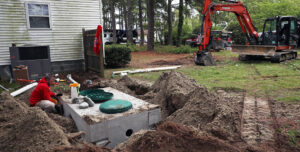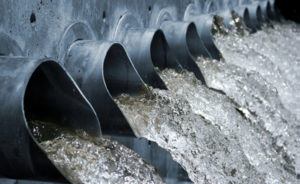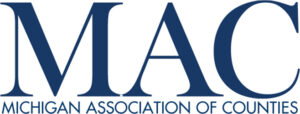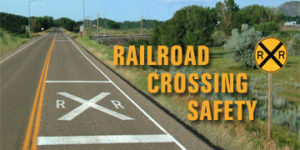State program will help homeowners on septic work
 Michigan homeowners may be eligible for a $50,000 low-interest loan to replace their septic systems under a new program. The Department of Environment, Great Lakes and Energy (EGLE) has launched the Septic Replacement Loan Program in partnership with Michigan Saves, a nonprofit green bank.
Michigan homeowners may be eligible for a $50,000 low-interest loan to replace their septic systems under a new program. The Department of Environment, Great Lakes and Energy (EGLE) has launched the Septic Replacement Loan Program in partnership with Michigan Saves, a nonprofit green bank.
Systems must be failing or near-failing to qualify for financing. Failing septic systems can contaminate groundwater, leading to a public health crisis. However, homeowners are often unable to repair or replace their systems due to financial constraints.
Those interested in applying for the program must first seek a bid from an authorized septic installation contractor, then contact their local health department to obtain a construction permit. The final step is to apply for a loan online. The available loan options have an average interest rate of 7.67% with a 15-year term.
While the proposed statewide septic code legislation has not yet had a public hearing and is far from becoming law, financing for homeowners has been a major concern for MAC. The Septic Replacement Loan Program is a step in the right direction to help address some of those concerns, with or without legislative change.
For more information on this issue, contact Madeline Fata at fata@micounties.org.
Bill to make state law on lake levels more flexible gets hearing
 A bill aimed at amending the state law on inland lake levels received a legislative hearing this week.
A bill aimed at amending the state law on inland lake levels received a legislative hearing this week.
Senate Bill 662, by Sen. Rosemary Bayer (D-Oakland), would redefine the “normal lake level” to account for temporary fluctuations caused by weather conditions and construction or repair activities. The current statute and recent court decisions that require counties to maintain a static lake level or to petition circuit courts to amend lake level orders when deviations occur is a time-consuming and costly process. SB 662, which is before the House Committee on Natural Resources, Environment, Tourism and Outdoor Recreation, intends to streamline this process by retroactively changing the definition to include the variations. By broadening the definition, counties and lake level districts should be able to avoid unnecessary lawsuits and repeated court proceedings, ultimately conserving both financial and administrative resources.
The bill is supported by the Michigan Association of County Drain Commissioners and the Michigan Department of Energy, Great Lakes and Environment.
For more information on this issue, contact Deena Bosworth at bosworth@micounties.org.
Bill would exempt broadband expansion grants from taxation
![]() A tax exemption may help to foster broadband expansion under proposed legislation. House Bill 5682, by Rep. Jen Hill (D-Marquette), was brought before the House Energy, Communications and Technology Committee for an initial hearing on Tuesday. The legislation would exempt broadband expansion grants from taxable income.
A tax exemption may help to foster broadband expansion under proposed legislation. House Bill 5682, by Rep. Jen Hill (D-Marquette), was brought before the House Energy, Communications and Technology Committee for an initial hearing on Tuesday. The legislation would exempt broadband expansion grants from taxable income.
When a broadband provider is awarded a grant by the state or federal government, they must pay 6% percent in corporate income tax. Most of these grants require a match from the broadband provider, so they are financially invested in addition to the awarded funds. Peninsula Fiber Network shared during committee that they were awarded $61 million by the federal government, they matched $26 million in private funds and are now required to pay $5 million in taxes. That $5 million could have been used to connect additional customers.
The counter argument is that, at present, the $5 million goes into the state’s General Fund. However, the tax collected on broadband expansion grants can hardly be accounted for by Treasury each year, as it is unpredictable and circumstantial.
MAC did not take a position on the legislation but has discussed it with stakeholders. It was supported in committee by the Broadband Association of Michigan and Southeast Michigan Council of Governments.
For more information on this issue, contact Madeline Fata at fata@micounties.org.
Bill to boost maintenance work on drains gets House hearing
 A bill to raise the current maintenance dollar limitation from $5,000 per mile per year to $10,000 per mile per year on county drains received a hearing this week before the House Committee on Local Government.
A bill to raise the current maintenance dollar limitation from $5,000 per mile per year to $10,000 per mile per year on county drains received a hearing this week before the House Committee on Local Government.
House Bill 5188, by Rep. Amos O’Neal (D-Saginaw), would change current law that limits the amount of maintenance work drain commissioners can perform on a single drain in a year to $5,000 per mile. This limit places stringent constraints on what a drain commissioner can do to perform maintenance on existing drainage systems each year. Whether the existing drainage system is an open channel ditch/watercourse or an enclosed underground system, much of the necessary maintenance of current drainage infrastructure across the state cannot be efficiently performed under the current limit, causing the commissioners to maintain smaller sections each year and redeploying equipment and personnel in subsequent years to properly maintain the drain.
The bill was not voted on this week, but further action is anticipated.
For more information on this issue, contact Deena Bosworth at bosworth@micounties.org.
No Legislative Update for May 31
 MAC’s Legislative Update will take a one-week hiatus due to the legislative break for the Mackinac Policy Conference on Mackinac Island May 28-31.
MAC’s Legislative Update will take a one-week hiatus due to the legislative break for the Mackinac Policy Conference on Mackinac Island May 28-31.
Expect the next Legislative Update on Friday, June 7.
For any late-breaking legislative news, watch for MAC special alerts or check our website at www.micounties.org.
May 29 webinar to focus on rail crossing grants
 A session focused on the Rail Crossing Elimination (RCE) grant, a federal program available to states and communities for improving the safety and mobility of people and goods, will be held on May 29 from 1 p.m. to 2 p.m. Eastern.
A session focused on the Rail Crossing Elimination (RCE) grant, a federal program available to states and communities for improving the safety and mobility of people and goods, will be held on May 29 from 1 p.m. to 2 p.m. Eastern.
Now approaching its second application period at the end of May, the program in its inaugural year delivered $570 million in grants to eliminate nearly 400 rail crossings in 32 states.
Attendees will hear from the Federal Railroad Administration on the program, including best practices for applicants. We will also feature a case study of a successful grant in Franklin Park, Illinois, including local and county perspective and insight from the project’s partner railroad CPKC on working with railroads on grant projects.
Treasury sets schedule for correcting millage rate errors
 The Michigan Department of Treasury (Treasury) reminds municipalities that, although not required, they can review and correct errors in Treasury’s calculation of each municipality’s millage rate eligible for the 2024 Personal Property Tax (PPT) reimbursement (MCL 123.1345(x)(ii)(B) and MCL 123.1353(5)).
The Michigan Department of Treasury (Treasury) reminds municipalities that, although not required, they can review and correct errors in Treasury’s calculation of each municipality’s millage rate eligible for the 2024 Personal Property Tax (PPT) reimbursement (MCL 123.1345(x)(ii)(B) and MCL 123.1353(5)).
The Local Community Stabilization Authority (LCSA) Act requires Treasury to make the eligible millage rate calculations available by May 1. The eligible millage rate calculations can be found on Treasury’s 2024 PPT Reimbursements website under the “Millage Rate Comparison Reports” heading. These 2024 Millage Rate Comparison Reports are intended to be used by municipalities to verify the accuracy of the eligible millage rates to be used in their 2024 PPT reimbursement calculations.
How to Review the 2024 Millage Rate Comparison Reports:
- Verify Individual Millage Rate(s) Levied in 2023
- Municipalities should compare the individual millage rate(s) levied in 2023 on the 2024 Millage Rate Comparison Reports with the millage rates reported on their 2023 Form 614 – Tax Rate Request (L-4029).
- Each millage rate reported on the 2023 Form 614 should be listed on the 2024 Millage Rate Comparison Reports (excluding special assessments).
- Verify Calculated Millage Rate Used in the Computation
- The calculated millage rates to be used in the 2024 PPT reimbursement calculations should equal the lesser of the eligible millage cap and the 2023 millage rate.
- The Millage Rate Calculation tab of the Excel workbook provides information about how each eligible millage rate is calculated.
- NOTE: Calculated eligible millage rates may be prorated and thus may not reflect the actual millage rates levied by the municipality.
When NO Millage Rate Errors Are Identified:
If a municipality does not identify an error in the 2024 Millage Rate Comparison Reports, the municipality does not need to file a form or take any further action to notify Treasury.
When Errors ARE Identified:
If a municipality does identify an error in the 2024 Millage Rate Comparison Reports, the municipality will need to complete the Form 5613 – Millage Rate Correction for the 2024 Personal Property Tax Reimbursement Calculations to notify Treasury of the error(s). In addition to the correction form, municipalities must provide substantiating documentation to support the millage correction.
The reporting forms related to the 2024 Millage Rate Comparison Reports (along with the associated deadlines) are available on Treasury’s PPT Reimbursements website under Forms and Instructions.
- Form 5608 – Portion of 2023 Essential Services Millage Rate Dedicated for the Cost of Essential Services
- Optional form to be used by counties, cities, villages, townships, and local authorities that levy an extra-voted millage rate that partially funds the cost of essential services (for example a Fire/Cemetery millage).
- NOTE: For extra-voted millage rates with a name that implies the millage was partially dedicated for the cost of essential services, Treasury has identified the millage type as “PARTIAL ESSENTIAL SERVICE” on the 2024 Millage Rate Comparison Reports.
- DUE DATE: Aug. 1, 2024
- Form 5613 – Millage Rate Correction for the 2024 Personal Property Tax Reimbursement Calculations
- Optional form to be used by municipalities that identify an error in the 2024 Millage Rate Comparison Reports.
- DUE DATE: Aug. 1, 2024
The corrections reported on Form 5613 and the essential services percentage reported on Form 5608 will be used in the calculation of the 2024 PPT reimbursements.
Form 5613 and Form 5608 submissions will not be accepted after Aug. 1, 2024.
Please direct any questions regarding the PPT reimbursement calculation or correction process to TreasORTAPPT@michigan.gov or 517-335-7484.
 Staff picks
Staff picks
- Over 25 years, (Kent County) Sobriety Court has helped change approach to justice (WOOD-TV)
- MDHHS project to keep families together is expanding (WNEM.com)
- These federal grants can help ease multiplying election threats (RouteFifty)
- New AI-powered data analyst designed for public sector (American City and County)
